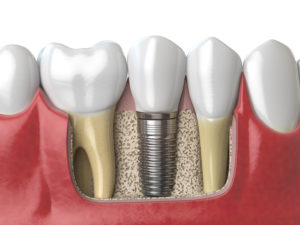Are dental implants right for me?


Dental Implants: A Versatile Tooth Replacement Option With Numerous Benefits
Dental implants can be used to support a single crown, a dental bridge or an entire denture, so they are suitable for many different types of tooth loss. Because they are the only structurally complete tooth replacement option, implant-supported restorations are superior to conventional appliances in a number of ways. They are more secure and more stable over time and more effective at chewing than fixed dental bridges or conventional dentures. Understandably, many patients are eager to get dental implants due to these characteristics and other benefits associated with the treatment method.
Conditions Needed For Dental Implant Success
Dental implants are so durable because they are made of biocompatible titanium. Bone tissue is capable of fusing with titanium, leaving the implant as a fixture in the jaw. In order for this osseointegration to be completed, however, the patient must have sufficient bone tissue at the site of the missing tooth. This can be problematic for some people, as the jawbone tends to wear away after tooth loss.
Your oral surgeon will assess the quality and quantity of bone tissue at the implant site in order to develop the treatment plan. If you have already experienced significant bone loss at the implant site, you may need to undergo a preliminary bone graft to supplement the available bone tissue. This does extend the treatment timeline, but it’s a valuable investment of time to reduce the risk of premature dental implant failure.
A consultation at our office is the best way to figure out whether dental implants are the right tooth replacement choice for you. Call us and speak to one of our friendly staff members today to schedule your appointment.